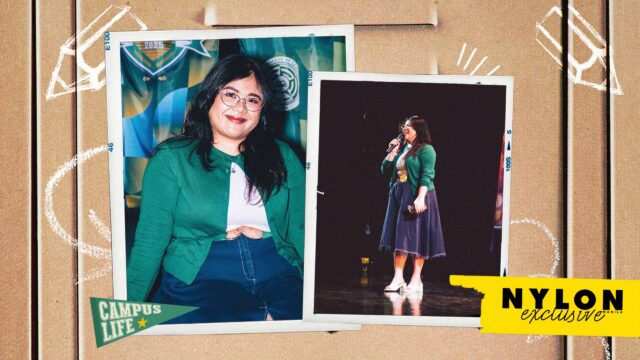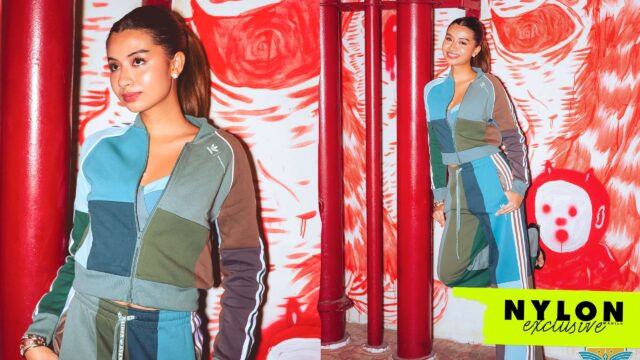Following the release of their collab, 2OFU, Singaporean artists Rangga Jones and Shye talk about existential problems, the power of the Internet, and finding your sound.
Related: A Candid Conversation With Rising R&B Musician Naomi G
Music has the power to transport us to a certain place, mood, or emotion where we find a space in which we are comforted by the memories of the past and taken away—even just for a brief, fleeting moment—from the anxieties and pressures of the present. We listen to it and somehow we’re reminded of experiences, both lived and imagined, mistakes, lessons, or just simple realizations about life that, for better or worse, make us come back to it over and over again. You’ll get to revel in the same inexplicable feeling with 2OFU, a new music duo formed by Singaporean independent pop sensations, Rangga Jones and Shye.
Pronounced as either “two of you” or “tofu,” 2OFU debuted in late October of last year as the second special collaboration project by Yung Lee Records, a Singapore-based music label that pairs up the country’s most talented up-and-coming musicians. And with talent, the newly minted duo surely overflows. Born in Indonesia, Rangga Jones is a multi-instrumentalist and an expert in audio production, self-producing his own music since his debut in 2021. The 26-year-old singer-songwriter-producer has quickly become a mainstay in Singapore’s editorial playlists with a steady stream of hits, including his debut EP, A Little Bit Patient, which has already garnered millions of streams on Spotify.
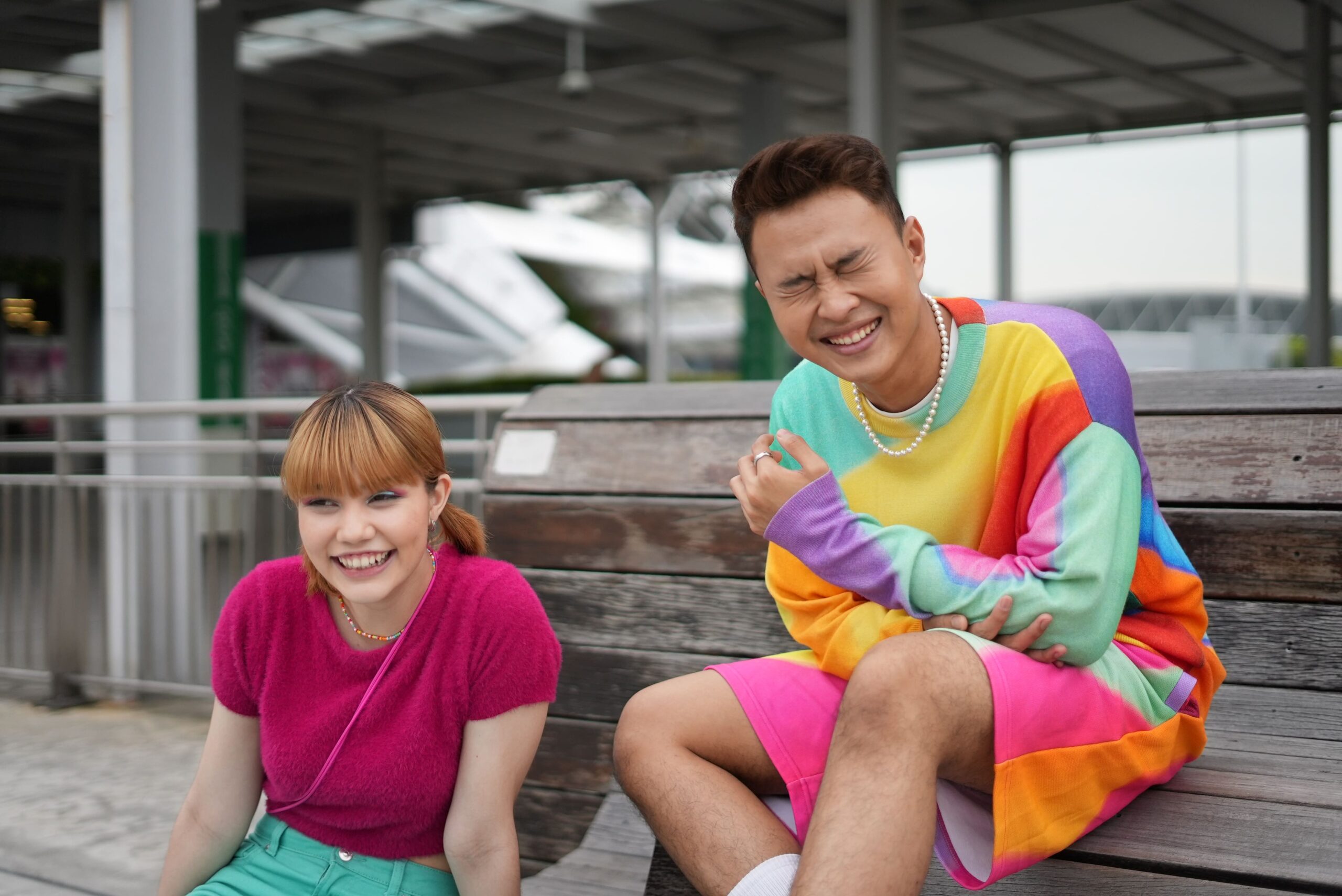
Meanwhile, the half-Chinese and half-British Shye was a self-taught teenager when she entered the music scene, even making her debut EP, Augus7ine, straight from the comfort of her bedroom and the convenience of her earphones. Having just turned 20, Shye has gone through a “bedroom-to-billboard” success releasing three genre-bending albums so far (including her debut album Days of Morning Glory, which she single-handedly crafted at the age of 17), gracing a billboard at the iconic New York Times Square, and being hailed as NME’s Best New Act From Asia last year and nominated in the world category alongside Olivia Rodrigo.
For 2OFU, Rangga Jones’ R&B sensibility and Shye’s dream and bedroom pop style meld together and makes for a sonic haven that, when combined with the duo’s mesmerizing vocals, is something that is so easy to escape to and so difficult to let go of. Mixed by singer-songwriter Dru Chen to irresistible goodness, 2OFU packs a trio of music pieces that charms with its groovy beats as much as it captivates with its relatable stories about the pressures of adulting, childhood nostalgia, overthinking, moving on, and failed relationships. NYLON Manila had the chance to chat with Rangga Jones and Shye where they shed light on their collaborative process, the discoveries they learned about themselves and the industry along the way, harnessing the power of the Internet, Asian and Gen Z representation, and staying consistent.
How did you end up in the music industry?
RANGGA JONES: I only started this music thing in late 2019 when I was still working at an office job full-time. And then something in me just told me I should just quit and try this music thing for real. And yeah, the rest is history, I guess.
SHYE: It was quite random because I didn’t do music. I didn’t have any interest in music growing up anyways. So, I think I just wanted to try something new because I was at home during the holidays, and I didn’t have anything to do. It was like a new hobby that I could pick up and I ended up really liking it. So, I continued.
How did you guys come up with 2OFU? Can you take me back to that moment when you came up with your band name?
RANGGA JONES: Yeah, the name 2OFU is actually “two of you” as well, so you can read it as both [tofu and two of you]. One night, we were just trying to brainstorm the name for the project. Shye, Joel (Joel Tan, founder of Yung Lee Records), and I, we came up with “two of us,” but it was taken. So, we took out the “us” and it became two of you. And then coincidentally, it sounds like “tofu,” which is quite cute. So, we kept it that way.
Can you walk me through how this collaboration started?
RANGGA JONES: Yeah, so Joel approached me with this idea of his record label Yung Lee Records. He was asking me if I was interested to do a dual project, and when he said that, we didn’t know that Shye was going to be interested in joining. So, it was just me joining first, and then later on, Joel told me, “Hey, man, we got Shye on board.” And I was like, that’s great! Because Shye does bedroom stuff and I’ve never heard her in a pop track which kind of got me excited. And then I think Joel reached out to Shye with some demos. I think we have two, and then yeah, she decided to join in. That’s how it started.
What are the songs or musicians that have been your inspiration in making this EP?
RANGGA JONES: I think there were quite a few. When I was making a bunch of demos for this project, I wanted a very clean, minimal sounding pop and very catchy music. So l, I don’t know if you know this band called Valley. I was into them a lot. They’re called Valley, and then just a bunch of [their] pop songs got me inspired. And yeah, I got these three final ones and made it to the EP.
SHYE: I think in terms of this project, I try not to think too much because I didn’t want to stress myself out too much. But actually, when I was writing for I Want To Be A Kid Again, I don’t know why, but I thought of Carly Rae Jepsen when I was writing it. I mean, because she is a pop queen. So, it’s like, I think I just had that inclination. But it wasn’t too like “I have to write this way. I have to sing this way.” And Rangga and Joel were very open to ideas as well. So, that’s really good.
There’s definitely a lot to unpack with 2OFU as it talks about the pressures of adulting, existential problems, love and loss, failed relationships, and the nostalgia of childhood. Can you share some personal experiences of these youthful frustrations that inspired you to make these songs?
RANGGA JONES: I think for the first song, We’ll Be Alright, it was quite a personal thing. Both Shye and I are overthinkers. We think a lot about the past or worry too much about the future. And then I thought it’d be cool to have something that comforts the listeners and comforts ourselves when we listen to it. Hence, the title. It’s just like reminding them to take it one step at a time, take it easy, just enjoy it now.
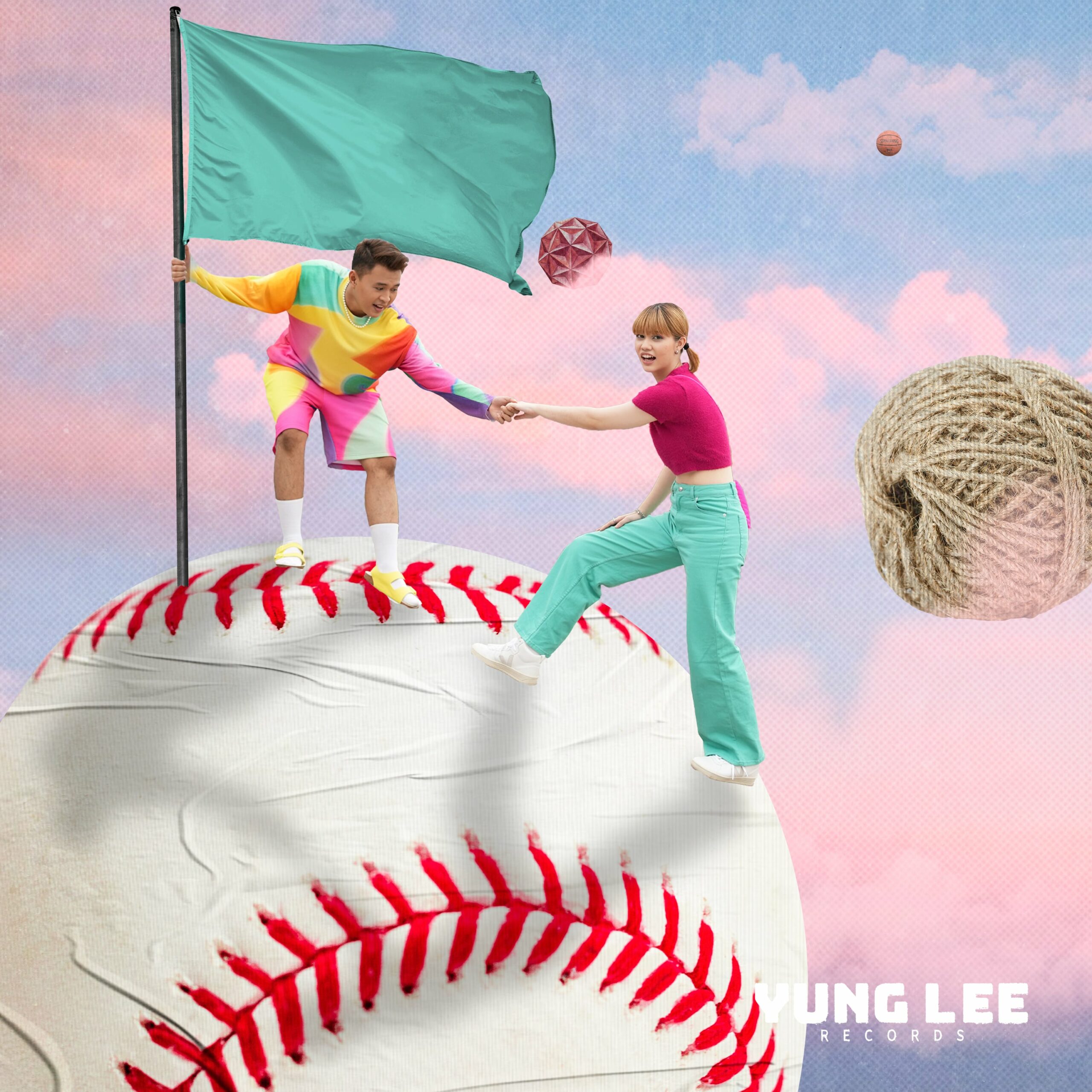
And then for I Want To Be A Kid Again, I just missed being a kid, you know, like I’m hitting my late 20s this month. I want to see like I’m in primary school again playing with my friends, no adult responsibilities. And that’s how I Want To Be A Kid came about. And the last one was just, I don’t know, it just came naturally. I did want to write something about love, but it’s kind of like a heartbreak kind of song. It’s more like two people just drifting apart. And that’s how This Is How It Ends came about.
SHYE: I think one of the things that I really liked [about 2OFU] was that not all the songs were about love. I think, usually, when it’s male and female collaboration, what you usually expect are love songs and stuff like that. And I think the topics that Rangga wrote about were just very relatable and it can be applied to anyone. They are things that I felt before like overthinking, worrying too much, and also wanting to be a kid again because I’m still very young. I’m technically still a kid also. I turned 20 this 2022. That’s very scary, obviously. So hopefully, whoever is also turning 20 maybe next year or has turned 20 can also relate to the song. Actually, my favorite is This Is How It Ends. There’s just something about the song. I think it’s Rangga’s favorite as well. There’s just something about the song, we don’t know. We really don’t know.
How is 2OFU different from your past works?
RANGGA JONES: I think it’s still kind of the same sound. Maybe it’s just slightly more minimal. I think it’s probably the most pop thing I’ve done so far. Yeah, that’s the only thing I could think of. But other than that, I think it’s still kind of similar.
SHYE: I mean, for me, it’s very different. But I don’t think it’s too different to the point where it’s like, “Oh, why is Shye on this?” I feel like one of the reasons why I say yes to collabs and stuff is because I can see myself on it. If it’s something that I can’t, then you know, I just have to let it go because there’s probably someone else who can do it better.
I feel like [2OFU] does have elements of both of us. Because obviously, when I was approached, I was a bit scared, because it’s not something I’ve done before. So, I wasn’t sure if I even fit the concept. But I think it’s because it’s not something that I usually do, it sort of brings something different to the table—maybe in the way that I sing or the way I articulate certain words and melodies. I think my own style, which is a bit more indie or like a bedroom pop kind of thing comes into play, which is very interesting. And I think when two people collaborate, they should still represent themselves.
Is there anything that you learned from making 2OFU? What did you guys discover about yourselves, your music, and/or the industry when you’re making this EP?
SHYE: I think I’ve learned that I can sing a pop song and that I shouldn’t be too scared to try something new. Obviously, I’m always open, but there’s always that “Is it going to sound okay, am I gonna sound okay,” stuff like that. Also, I think it has taught me to really appreciate the Internet, because the whole thing was done online. The whole production of the EP was online, so I think that’s one of the reasons to really not take the internet for granted.
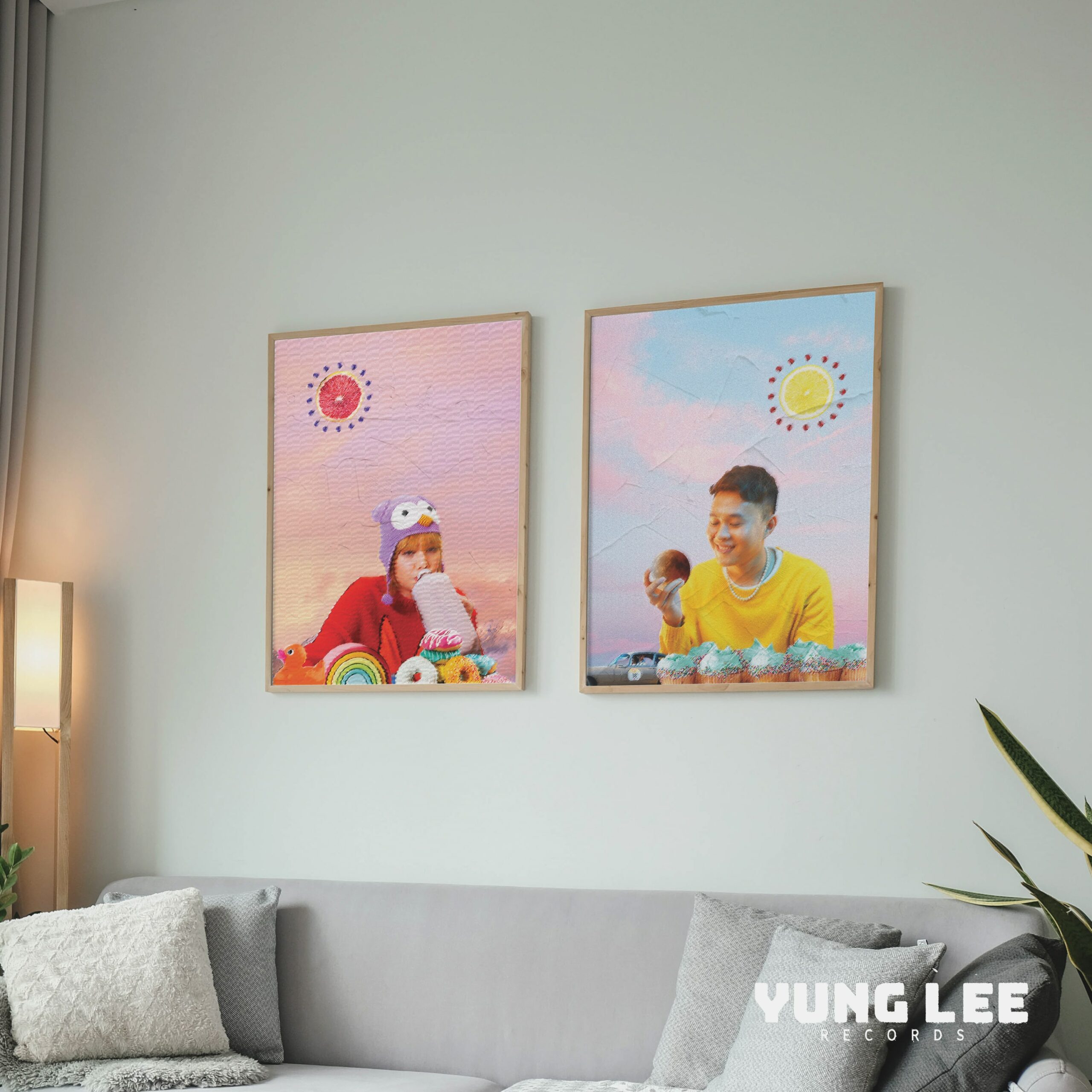
RANGGA JONES: I think for me, just collaboration in general. I’ve learned that it’s so much faster writing a song with two brains. I think both Shye and I, we write our songs solo. We do most of the stuff ourselves. But it is quite nice to have another person writing songs with you and bouncing off ideas with.
2OFU is described as something that ‘intends to be the voice for everyone and anyone’ and that it pays homage to your Asian heritage. How does your Asian identity figure into the music you make? How does it influence your music?
SHYE: I feel like in recent years, Asian artists have been doing very, very well. I feel like it’s not something that has happened for a long time because the industry has still been very Western. So, I feel like Asian artists constantly have to prove themselves to the Western market and stuff like that. And I think we [Asian artists] probably compare ourselves a lot to them. I think now, especially because of the influence of K-Pop, people are more open. And I think we should use that to our advantage in a way because there’s so much talent in Asia and Asia is so big. It has so many different countries and there are so many different cultures and different kinds of musical instruments also. So, I think, yeah, I’m very happy to be Asian. I am half British but I grew up here and I feel more Asian.
Apart from representing Asian music, you’re also representing the younger generation in the music industry. How is it being the representatives of this generation in the competitive music scene?
SHYE: I’m just very happy that people are taking young musicians seriously. I think even though we may not have as much expertise and stuff like that, we’re still very open to learning. And we’re open to growing and learning from our seniors. I do have a lot of respect for the people that have paved the way to make things possible for me because things are so much easier. Music is so much more accessible now. And I feel like a lot of young kids now are making music. So, I don’t know, it’s scary to think that in 10 years time, we’re gonna be talking about this, but as older people.
What do you want to tell young people who are also dreaming of breaking into or entering the music industry?
RANGGA JONES: Probably just stay consistent and discover what you enjoy making. Don’t get too pressured on what’s the music trend right now and jump on the bandwagon. Just find out your sound and then eventually, you’ll find true fans and true listeners that will like your stuff and look forward to your next releases. So, staying consistent is super important.
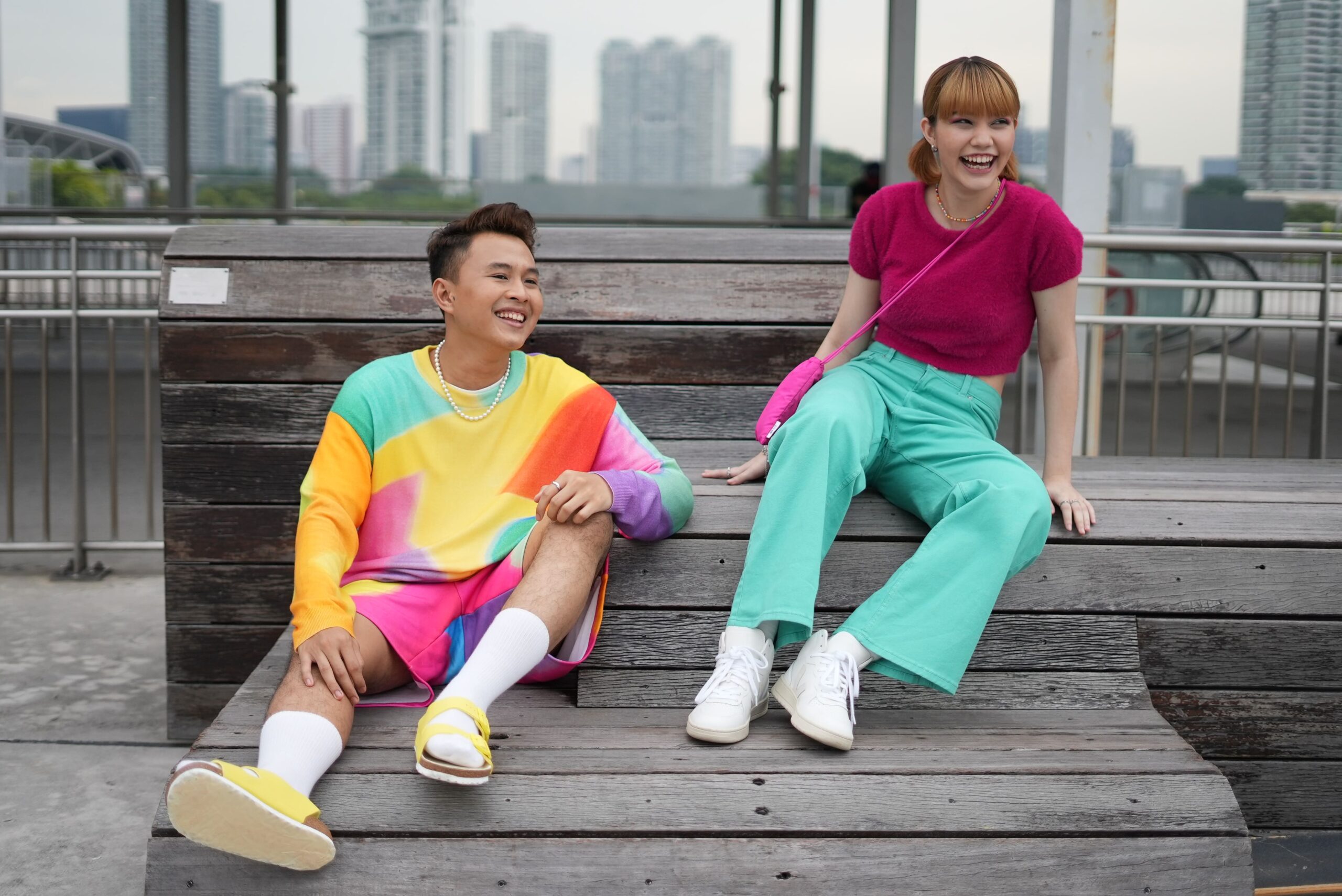
SHYE: Also, don’t be afraid to try and also be very hands-on with what you’re doing. I think you know yourself best and you know what you want. Don’t let other people decide that for you. And I think learning how to produce and what software [to use] is very important. Not just knowing how to play an instrument because obviously, that is very useful. But I think just having basic knowledge of the more technical things is very helpful as well. Because Rangga and I, we’re both producers. We were both self-taught and the Internet is amazing. We have YouTube and Google so I think there’s a lot of information out there, too. Yeah, it’s the dry part of the whole music thing, but I think it’s very important to have that basic knowledge.
RANGGA JONES: It’s a good approach. You can save a lot of money in making songs if you can produce yourself.
SHYE: And if you’re doing it yourself, you have access to it anytime.
What do you want the listeners of your new album to take away from 2OFU?
SHYE: I just hope they like the songs.
RANGGA JONES: Yeah, that’s number one. That’s probably the most important thing. And of course, hopefully, they can relate to the topics as well. And yeah, I just hope they like the songs.
If you would describe 2OFU in one word, one for each of you, what would it be?
RANGGA JONES: I’m thinking of a very basic word. “Fun” is so basic, right? I don’t want to say fun.
SHYE: Like, “carefree.”
RANGGA JONES: Carefree, yeah! Those two things I was thinking about. Fun and carefree. Those are the two good ones.
Continue Reading: How Taking A Gap Year Turned Gabe Watkins Into A Bona Fide Musician



